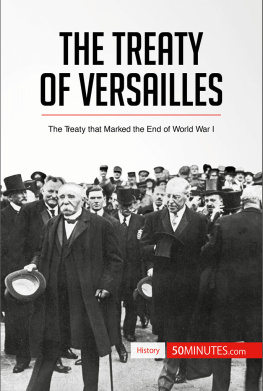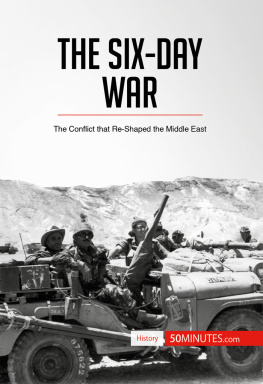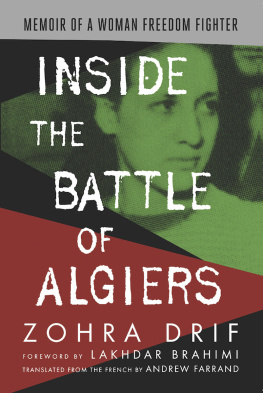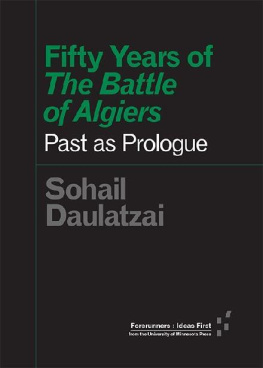THE BATTLE OF ALGIERS
KEY INFORMATION
When: 7th January 8th October 1957
Where: Algiers
Context: The Algerian War (1954-1962)
Belligerents: France against the Algerian National Liberation Front (FLN)
Commanders and leaders:
Jacques Massu, French General (1908-2002)
Roger Trinquier, French superior paratrooper officer (1908-1986)
Mohamed Larbi Ben Mhidi, responsible for armed action in Algiers (1923-1957)
Yacef Sadi, head of the autonomous zone of Algiers (born in 1928)
Outcome: French victory
Victims:
INTRODUCTION
The Battle of Algiers, also called the great repression, was a particularly painful episode in the Algerian war, which was rooted in the context of decolonization. The fighting lasted for nine months between the 10th Parachute Division of General Jacques Massu and the Algerian nationalist National Liberation Front (FLN). Unlike a conventional war between two armies, it was, on the part of France, a true commando operation, whose methods would later be denounced by international public opinion.
In the summer of 1956, the center of Algiers was shaken by a series of terrorist attacks by the FLN which, wanting to destabilize French society and demonstrate to the world the legitimacy of its fight for independence, aimed for the center of French power in Algeria. Directly threatened, France decided to fight back and on 7th January 1957, the troops of General Jacques Massu entered the kasbah of Algiers, a Muslim neighborhood where nearly 75,000 individuals resided. There, the French soldiers defended themselves by leading a war against insurgency, using techniques that were developed by studying the Viet Minh (Vietnamese political and paramilitary organization) during the Indochina War (1946-1954).
While the deadly bombings of the FLN multiplied, thus radicalizing the French population in Algeria even more, French paratroopers and commandos identified, searched, questioned, imprisoned, tortured and killed in order to dismantle the terrorist resistance network. The battle ended in October 1957 with the arrest of the most influential members, marking the dismantling of the FLN, and temporarily ending the violence. Although the Battle of Algiers was only a short episode of the conflict, it would serve to denounce the abuses committed by France in its struggle to keep Algeria French. Indeed, cornered by critics, the government decided, under the authority of Charles de Gaulle (1890-1970), to abandon the fighting and, on 18th March 1962, France signed the Evian agreements to enshrine the independence of Algeria after eight years of fierce resistance.
POLITICAL AND SOCIAL CONTEXT
THE DECOLONIZATION PHENOMENON
In the 19th century, colonization was carried out by a handful of European countries, including Britain, France, the Netherlands, Belgium, Germany and Italy, which possessed all of Africa and much of Asia by the end of the century, therefore ruling over hundreds of millions of people. The two world wars (1914-1918 and 1939-1945), however, marked the cessation of European settlement. The prestige of France and Britain was indeed heavily marred by numerous military defeats and the significance of human and material losses suffered during the fighting.
Moreover, the people of Europe were gradually becoming aware of the dire living conditions of the colonized peoples, while, from the interwar period, independence movements were emerging in the colonies, led by a few intellectual elite. These movements more or less succeeded in rallying the masses which remained largely illiterate. During the Second World War, due to the weakened colonial control and the forced recruitment of thousands of colonial fighters, these movements were radicalized and emitted claims in order to obtain their emancipation. In the Middle East, some colonies took advantage of this change in the balance of power to claim their independence. This was particularly the case with Syria and Lebanon, who gained independence from France in September 1941 and November 1943 respectively.
Although in 1945, France and Britain still occupied most of the colonized space, they had lost a significant part of their economic power and prestige. That is why France, defeated by the German army in 1940, was keen to retain its empire, while Britain, undefeated and more pragmatic, considered the situation more in terms of economic interest.
The United Nations Charter signed in 1945 marked the birth of the UN and also proclaimed the right of all peoples to be self-determined, which would be interpreted by the colonies as a call to intensify the claims.
While some colonies gained independence in a relatively calm manner, often in exchange for territorial or political economic benefits, others were forced to resort to arms in order to achieve this ideal. However, after the weakening of the European nations during the Second World War, the tension from the Cold War (1947-1989) facilitated the process of decolonization.
G OOD TO KNOW
The Cold War was an ideological conflict fought between 1947 and 1989, with a Western bloc led by the United States against an Eastern bloc led by the Soviet Union. The term cold refers to the fact that, during this period, there would never be a direct armed conflict between the two main belligerents.
While the Americans and the Russians were the big winners of the Second World War, they strongly opposed the colonial aspirations of the European powers. The first, having achieved independence from Britain in 1776, had defended the freedom of peoples to choose their own form of government ever since. The Soviets in turn followed the precepts of the founding father Vladimir Illyich Lenin (1870-1924), who advocated the emancipation of the peoples on the way to the revolution. However, the ideological divide between the two powers affected the demands for independence of the colonized peoples. This was very visible in Asia, where a Russian-Chinese mainland influenced by communism opposed a Southern Asia that opened on seas under American influence. Since then, several leaders of independence movements who had openly proclaimed themselves Marxists (movement of thought advocating class warfare) had been at the head of influential communist parties. Meanwhile, the United States maintained colonial authority in the countries remote from Marxism to ensure the cohesion of the block.
In 1955, the Bandung Conference (Indonesia) was held, bringing together the leaders of the former colonies, led by Gamal Abdel Nasser, the future Egyptian president (1918-1970). They were aiming to stand out from the bipolar logic of the Cold War (anti-imperialism versus anti-communism) by becoming champions of anti-colonialism. This movement born of the Cold War logically amplified the liberation movements for independence, particularly in Africa.












